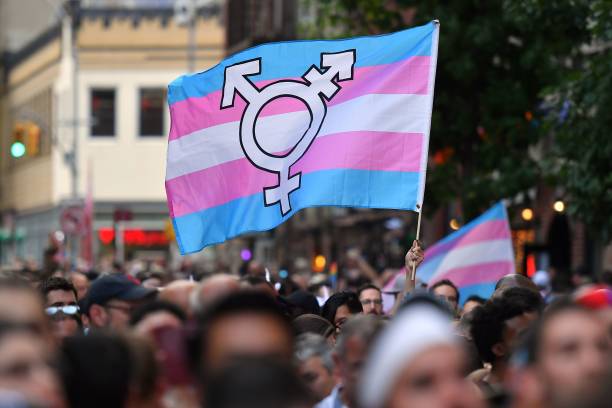
The Political Pendulum: The Biden Administration's Reinstatement of Transgender Health Protections

In June 2020, amid the national calls for police reform and racial justice after the death of George Floyd in Minneapolis, the Trump Administration repealed an Obama-era anti-discrimination policy, effectively restricting LBGTQ nondiscrimination healthcare and health insurance protections.5,7 While national headlines were inundated with images of police violence and the pandemic, this change went largely unnoticed and unprotested. Tia Sherèe Gaynor, a political science professor at the University of Cincinnati, noted: “I can’t help but wonder if the timing [of this rule] is by design so that this is something that people won’t pay attention to.”7 Proponents of this change argued the previous policy represented an egregious example of administrative overreach. Detractors worried that transgender individuals, those who would be most affected by this change, would be further marginalized.4,5
A semantic argument, a legal loophole
The reversal centered on the definition of “sex discrimination” laid out in Section 1557 of the Affordable Care Act, formerly encompassing sexual orientation and gender identity in addition to biological sex during the Obama administration. In 2016, the Obama administration defined “sex” as “male, female, neither, or a combination of male and female,” upholding that it was illegal to discriminate on the basis of “race, color, national origin, sex, age or disability in certain health programs and activities.”2,8 The Trump reversal redefinition sex biologically, only protecting those who identified dichotomously as male or female.2 This change, while semantic, was not insignificant: it opened a legal loophole that threatened transgender individuals’ rights.
“Sex discrimination”: based on biological sex, or more expansive?
While Roger Severino, former director of the Office for Civil Rights in the Department of Health and Human Services (HHS) under the Trump administration noted that “HHS respects the dignity of every human being, and as we have shown in our response to the pandemic, we vigorously protect and enforce the civil rights of all to the fullest extent permitted by our laws as passed by Congress,”7 of the reversal he stated, “we’re going back to the plain meaning of those terms, which is based on biological sex.”7 Critics argue that this narrowed definition of sex discrimination could lead to providers refusing to treat transgender individuals, restricted access to health plan marketing, cost-sharing, and benefits, or insurers refusing to cover conditions that do not align with an individual’s self-reported gender identity (a transgender man diagnosed with ovarian cancer, for example).
An additional barrier to care for transgender individuals
A vocal supporter of Trump’s revision, Dr. Jeff Barrows, the Executive Vice President for Bioethics and Public Policy at the Christian Medical Association, stated “health professionals know they must base medical decisions on biology and science, not ideology.”7 Opponents like Lindsey Dawson, Associate Director of HIV Policy at the Kaiser Family Foundation, counter this argument, stating that harmful policies like this could create “a patchwork of civil rights, compared to standardized protections,”7 leaving some transgender individuals unprotected with resources unequally distributed. As an already vulnerable sub-group with a well-documented history of reluctance to seeking medical care, this policy could have served as an additional barrier to care for transgender individuals.
“It’s layers of oppression — it’s transphobia on top of racism on top of economic oppression,”7 said Gaynor, citing a recent study by the Willams Institute at UCLA that indicates that transgender individuals, particularly those who identify as people of color, are more likely to become sick or die from COVID-19 infections as a result of a lack of access to health insurance and increased risk factors such as underlying health conditions and poverty.9 In the face of discrimination, transgender care-seekers can sue, but may be unwilling to invest time and money in protracted legal battles.
A tenuous victory, the political pendulum swings toward justice
Recently, the Biden administration overturned this Trump-era policy to align the definition of “sex” in Section 1557 of the Affordable Care Act to again include sexual orientation and gender identity in addition to biological sex. “Fear of discrimination can lead individuals to forgo care, which can have serious negative health consequences,”6 said HHS Secretary Xavier Becerra. “Everyone — including LGBTQ people — should be able to access health care, free from discrimination or interference, period.”6 This is in alignment with the 2020 Supreme Court’s decision in Bostock v. Clayton County, Georgia, that federal laws against sex discrimination protect gay and transgender people in the workplace: “an employer who fires an individual merely for being gay or transgender violates Title VII”1 stated the majority opinion, authored by Chief Justice John Roberts and Justice Neil Gorsuch. While this landmark case serves as a legal precedent that may fend off future attacks on transgender rights and those of members of the LGBTQ community more broadly, administration changes and constant political pressures make for a tenuous victory.
The political pendulum has once again swung toward justice. But what’s to say it won’t swing back?
References:
HPHR.org was designed by ComputerAlly.com.
Visit HPHR’s publisher, the Boston Congress of Public Health (BCPH).
Email communications@bcph.org for more information.

Click below to make a tax-deductible donation supporting the educational initiatives of the Boston Congress of Public Health, publisher of HPHR Journal.![]()